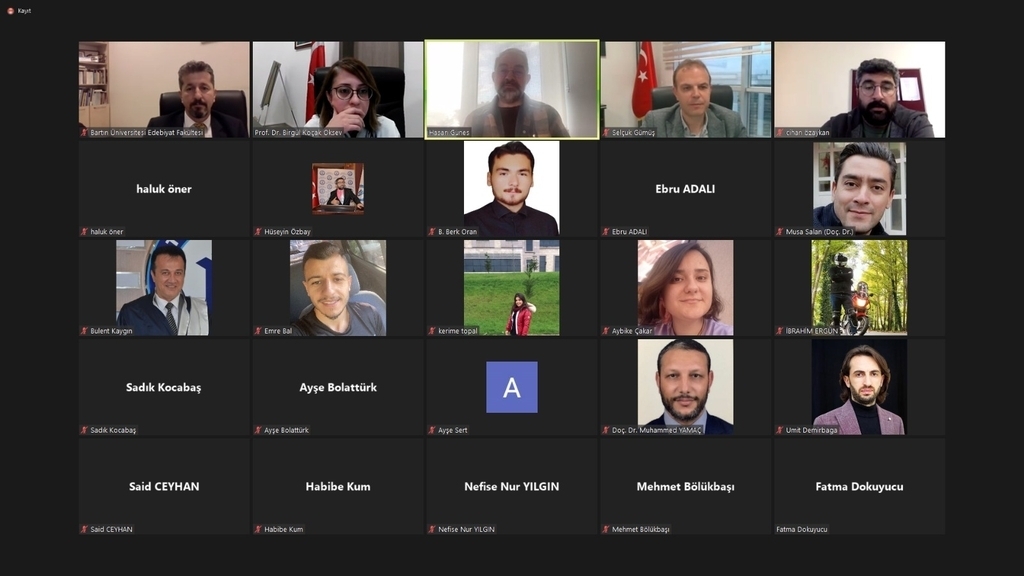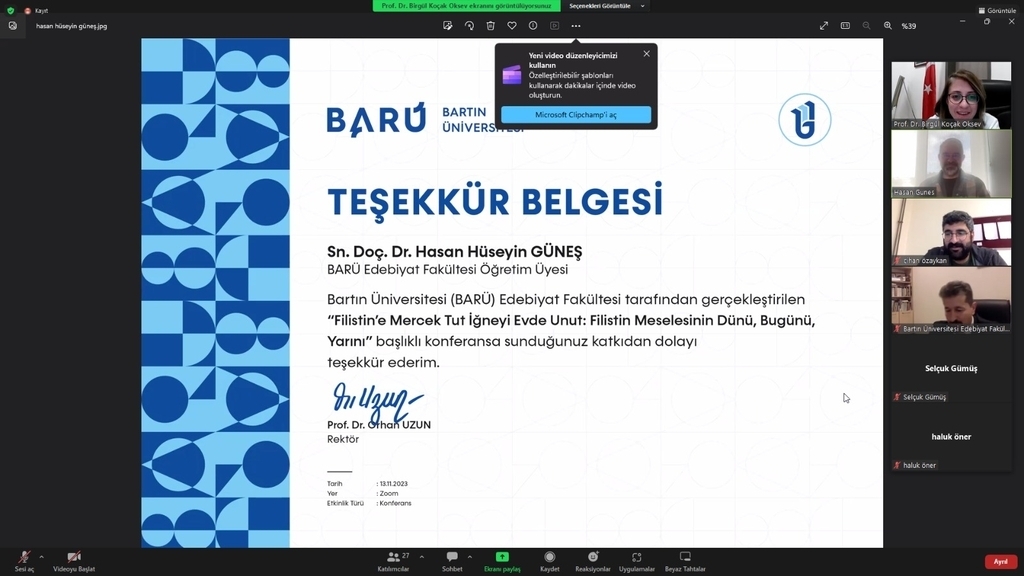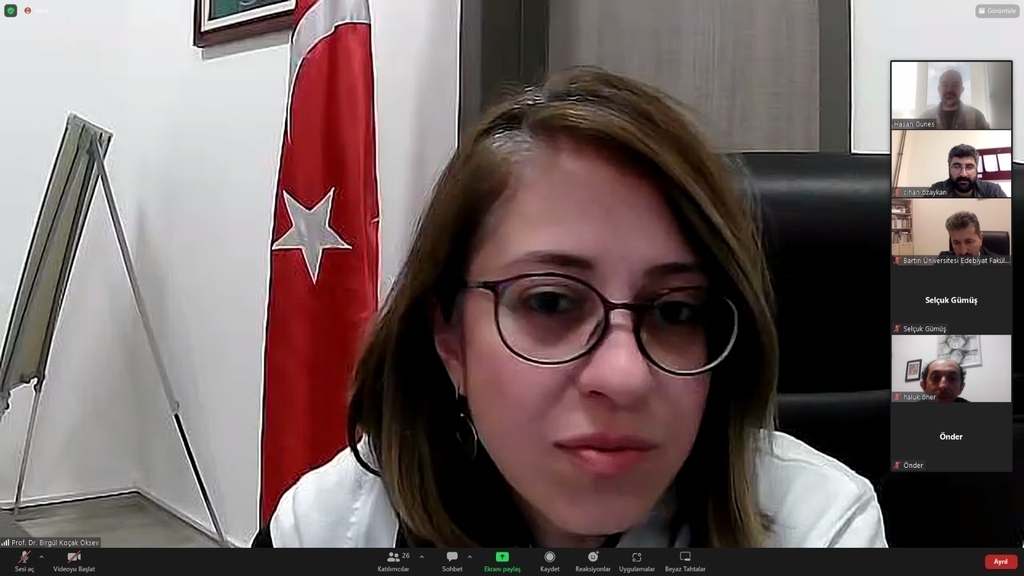- About Us
- Administration
- Internal Control
-
Quality
- Quality Policy
- Quality Management Organization Scheme
- Unit Quality Commission
- Unit Internal Evaluation Reports
- Unit PUKÖ Based Action Plans
- Unit PUKÖ Based Action Plan Monitoring and Evaluation Reports
- Accreditation Information
- Unit Advisory Board
- Commissions
- Workflow Diagrams
- Forms
- Faculty Board of Directors Decisions
- Faculty Board Decisions
- Survey Reports
- Barrier-Free University Awards
- Job Descriptions
- Quality Handbook
- Academic Departments
- Staff
-
Current Student
- Academic Calendar
- Course Programs
- Examination Programs
- Orientation Booklet
- Online Application Modules
- UIMS (University Information Management System)
- Course Information Packs
- Double Major Program
- Minor Program
- Erasmus Exchange Program
- Mevlana Exchange Program
- Farabi Exchange Program
- UZEM Education Videos
- UZEM
- Student Representatives
- Future Student
- Documents and Forms
- Reports and Guides
- Barrier-Free Faculty
- Communication with Graduates
- Social and Cultural Activities
- Alumni Data System
- Study in Turkey
- Publications
- Contact US
- Contact Form

The past, present and future of the Palestinian issue was discussed at BARU.
In the online conference held at Bartın University Faculty of Letters, the Palestinian issue from 1917 to today was mentioned and it was emphasized that the human tragedy in Gaza has turned into a humanitarian issue.
The meeting was moderated by BARU Faculty of Literature Dean Prof. Dr. Birgül Koçak Oksev. BARU Faculty of Literature Faculty Member Assoc. Prof. Dr. Hasan Hüseyin Güneş, who is a researcher at Harvard University, informed the participants about the transfer of the Palestinian issue from past to present in the conference.
"More than 4 thousand children lost their lives"
Delivering the opening speech of the conference, Prof. Dr. Oksev stated that they are going through the bloodiest period in the history of the Israeli-Palestinian conflict and said, "According to the information given in the media, more than 11 thousand people have lost their lives and continue to lose their lives as of today in this last turn that started on October 7. More than 4 thousand of these casualties are children. According to United Nations data, 1.5 million people in Gaza had to leave the city. For those who have managed to survive, there is a major humanitarian crisis. There is a food and water crisis and the risk of epidemics. On the other hand, there is also an information overload," he said, summarizing the current situation.
"What happened has now turned into a conscientious and humanitarian issue"
Taking the floor to talk about both the historical dimension and current issues that will shed light on today, Assoc. Prof. Dr. Güneş stated that the Palestinian issue is an issue that should be looked at yesterday, today and tomorrow with a lens.
Güneş said, "This situation has now turned into a conscientious and humanitarian issue. The problem of belonging of the Palestinian people has been continuing since 1917. Palestinians constitute the largest refugee group in the world. Even this is the background of how incomprehensible the Palestinian Question has become. We cannot get the right idea without following the historical dimension of the process and reading the sources that explain the essence of the work."
"We must unite and work for peace in the region"
After drawing a perspective describing the historical process, Güneş touched upon today's problems and said, "This historical process also has a present. What are we Muslim countries doing about this? We need to ask this. Many civilians and children are being killed. Why can't serious sanctions be imposed on the problem that has been going on for years, where such a humanitarian confusion is taking place? 57 Muslim countries should unite against this problem and work for peace in the region. In the international arena, Muslim countries should unite and make their voices heard more. Currently, there are protests against the Palestinian people in many countries around the world. Our hope is that peace will be achieved as soon as possible."
The conference, which was followed with interest by academics and administrative staff, ended with the wish for lasting peace in the region after the questions and answers were taken.
Fotoğraflar


 Türkçe
Türkçe







